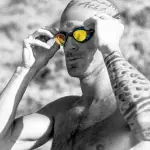We're Stronger Together
Pro, newbie, seasoned age-grouper, we can all benefit from the support of others. From accountability to camaraderie, having a group to train with and learn from is invaluable.When looking to buddy up for training, consider what it is that you're looking for in a training partner or group. Do you work best in a big group in which you can be social and have fun? If so, find a tri club or a local training group that offers both regular training and a social calendar of events. If there isn't a group in your area, start one.
If you're a self-motivator and enjoy pushing yourself solo, it can be helpful to find a training partner or two who are at the same fitness level or higher to help you get to the next level. Sync up on your harder workouts and create some friendly competition. If your schedules don't match up, battle each other with your data--a program like Training Peaks makes it simple to compare data/metrics for any given workout you log.
Swim, Bike, Run, Yoga
The formula for open water swimming success is not as cut and dry as simply consistently swimming. Much of your efforts and focus should be out of the water, improving mobility, developing a stronger core and connecting with your breath.Mix in a yoga class once or twice a week. Dedicating an hour to stretching and improving balance likely won't happen otherwise. The foundational yoga postures that all classes include perfectly address shoulder/hip/back mobility and can increase your range of motion. Similarly, finding a regular Pilates class will help train you to fire off and engage your core functionally in all three disciplines.
Adding another specialist to your team may provide the biggest return on your investment in triathlon: Find a physical therapist that focuses on athletes. From run gate analysis, to postural assessment and stability work, learning how to functionally move and create the neuro-muscular connection necessary for a healthy triathlete body is critical.
 Ready to ride? Search for a triathlon.
Ready to ride? Search for a triathlon.



